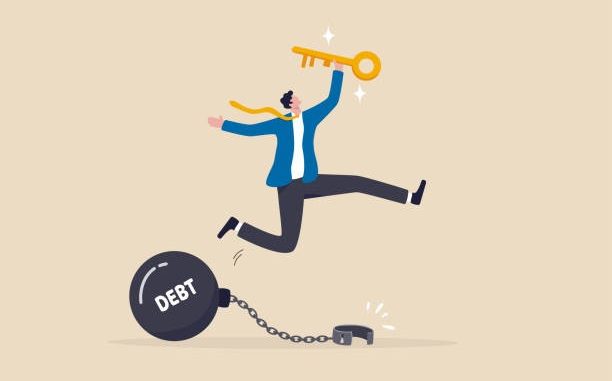
Introduction:
Everyone uses debt. It is a financial tool that individuals and businesses use to finance purchases, make investments or undertake projects. Wise money management is crucial to making debt a truly beneficial business. But any mishandling of it will become a burden, not an advantage; and wise debt management consists in developing your own strategies for reduction of debt,priorities in dealing with financial goals, and the hope for long-term financial freedom. This paper provides various effective strategies and practical suggestions for managing debt wisely. The ultimate aim, we hope, is to help achieve financial stability and independence.
Assess Your Debts:
The first step in managing debt wisely is to understand fully your present situation about borrowing. List all your debts: credit cards, personal loans, mortgage repayments etc. Jot down what the balances are, interest rates and minimum monthly payments on each loan. Acknowledging the entire extent of your debts makes it possible for you to come up with a clear plan of action (paying them off gradually) and economical methods.
Draw up a Budget and Financial Plan:
For effective debt management and achievement of your financial goals, it is essential that you develop a budget and financial plan. Start by analyzing your income, living expenses and spending habits to find out what areas you can cut back on discretionary spending so as to place more money into repaying debts. Work out a realistic budget which also includes debt repayments and essential spending. Set specific financial targets – say paying off high-interest-bearing loans, building up an emergency fund and providing for future expenditure or savings.
High interest debts should come first as they cost a lot and speed up the process of honoring debts. The snowball or avalanche method will help you prioritize debts to pay off in terms of interest rate and amount owed. The snowball method means that you focus on paying the smallest debts first, while the avalanche technique is aimed at repaying debts with high interest rates. Decide which strategy is consistent with your financial goals and motivates you to stay committed to debt reduction effort.Consolidating and Refinancing Your Debt
As a way out of managing all of your debts and keep interest costs as low as possible, consolidation and refinancing are worthwhile paths. Consolidation involves combining your multiple debts into one loan with a lower interest rate or monthly payment. Refinancing is to exchange the current loans or credit accounts for new ones that come with better terms and interest rates. Perform your own due diligence and think over both balance transfer credit cards, personal loans, and home equity loans if you are considering debt consolidation.Refund for paying down credit card bills
If you’re facing financial difficulties or having trouble keeping up with debt payments, consider talking to your creditors about credit rehabilitation plans, lowering interest rates and debt settlement. Many creditors today are sympathetic to the borrower’s plight and are willing to provide mutual solutions which will not result in default or bankruptcy. Speak directly to your creditors: ask about conditions for hardship programs, extensions on payments or reorganizing debts in a way that lifts financial stress and leads to debt repayment.
Building Emergency Savings:
Building an emergency saving pool is one of the keys to managing debt properly and preparing for inevitable, often unexpected expenditures or unexpected financial ethical behaviour. You should strive to save at least three to six months’ of living expenses accessible in a simple bank account or emergency fund. With a financial lifeline, you can avoid the necessity of credit cards or loans during emergencies and it helps you work toward your goals for paying off debt.
Seeking Professional Financial Advice:
If you are having difficulty with debt management, or wish to develop a plan for getting out of it, then consider consulting professional people at places like the Certified Financial Planners (CFPs) or credit counselors, who are financial management specialists. Financial experts can evaluate your current situation, propose practical ideas tailored to your specifics and help you design a logical debt management strategy. They also will present money-saving suggestions on budgeting, investing and longer-term financial planning leaving to enable future financial security.
Conclusion:
Making debt work for what matters to you is essentially how sound financial management, the reduction of financial stress, and the attainment of long-term financial freedom are achieved. By analyzing your debt situation, making a budget and financial program for the future, repaying debts vigorously, refinancing/ renegotiating debt, stockpiling emergency savings and gaining expert advice on financial management techniques such as them, you can install effective means to reduce debt. The key is discipline: keep an eye on your progress and be willing to honor the financial goals you’ve set yourself to arrive at a day of debt currency that has passed into history without trace.
Leave a Reply